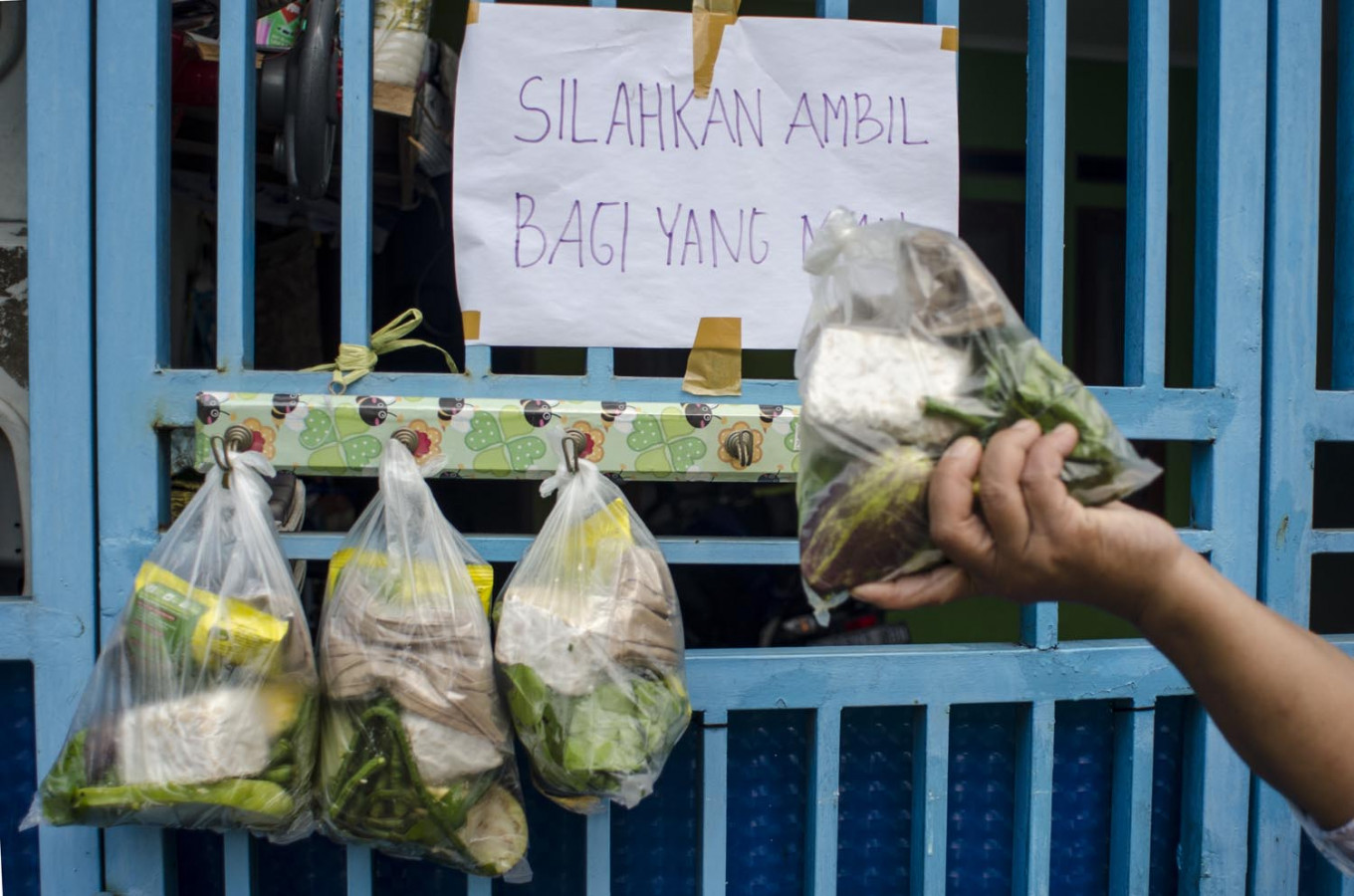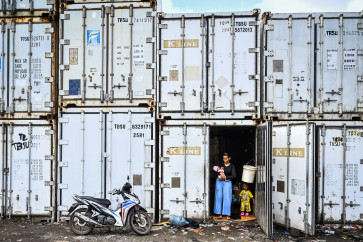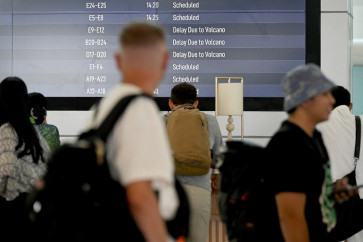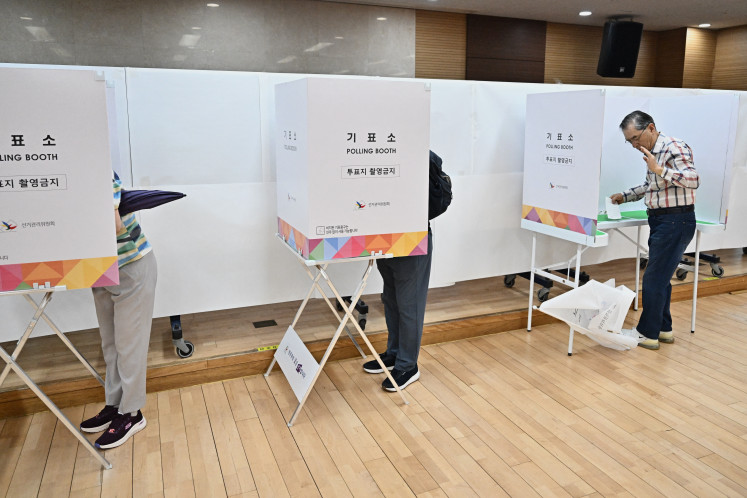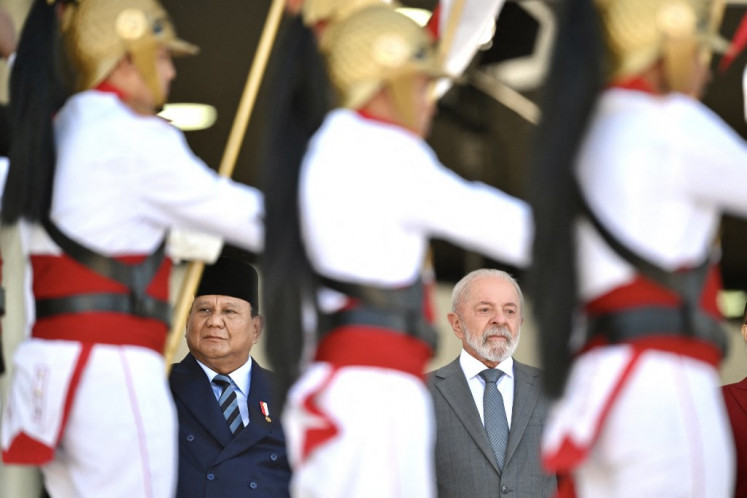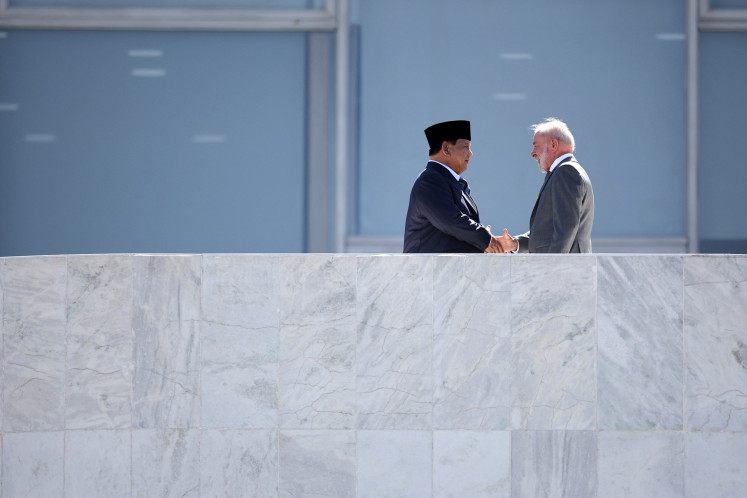Popular Reads
Top Results
Can't find what you're looking for?
View all search resultsPopular Reads
Top Results
Can't find what you're looking for?
View all search resultsReaching out
Initiatives by local communities, civil society and faith-based groups have filled the gap the government has failed to cover.
Change text size
Gift Premium Articles
to Anyone
“Please take for those who need” reads a sign in a village in Java, hung alongside several bags of food. The woman who hung them up tells a reporter that maybe the government aid has missed some people.
This sense of solidarity may be a significant factor in toning down widespread frustration as sources of income have plummeted, if not vanished altogether, as the COVID-19 pandemic takes its economic toll. More groups of ordinary people have spontaneously arranged donations and other forms of support for the vulnerable including poor and elderly neighbors, residents who have had to self-isolate after testing positive for COVID-19 and health workers lacking protective equipment or even accommodation.
Authorities meanwhile are scrambling to fix discrepancies in data as well-off people receive government aid packages instead of needy neighbors. The data needed is not just on the poorest but also the additional millions of self-employed and workers laid off without any security or insurance.
Some have managed to flee to their hometowns, before lockdowns were put in place, in the hope of at least being able to eat at home. Relying on family and community is the first instinct as government support has often proved unreliable or slow.
Initiatives by local communities, civil society and faith-based groups have filled the gap the government has failed to cover. This form of social solidarity has fended off fears of impending unrest resulting from the aid-distribution muddle.
As chief security minister Mahfud MD has said the government is also striving to help even those without proper papers, the message being that local authorities should not create difficulties in distributing desperately needed aid.
Though leaders keep praising society for the traditional display of gotong royong (mutual help), improving distribution of government aid and extending it to reach all vulnerable groups is essential, particularly given the wide range of estimates on when the COVID-19 pandemic will significantly decline and the economy can rebound.
Expert scenarios show the crisis lasting for a few months to a year. In that uncertain time frame it is also uncertain how long such social solidarity will last and how much it can alleviate hardship. People may want to keep giving, especially reminded perhaps by the spirit of the Ramadan fasting month. However, over the following months there may be many more people in need compared with those able to give, not to mention the onset of aid fatigue.
The scenarios on the duration of the health crisis also depend in turn on crucial uncertainties posed by many holes in the large-scale social restrictions compared with the highly contagious nature of COVID-19. As our writers remind us, solidarity here is more dominated by charity, meaning Indonesians may be generous but not necessarily willing to join the battle against injustice, such as to demand accountability and supervise the distribution of aid.
This may be true in many other societies. Thus, while anyone with more means to survive should reach out with whatever assistance they can offer, close cooperation and supervision is also needed to ensure the correct targeting of government support.

